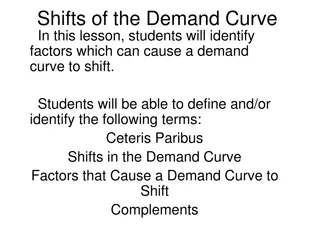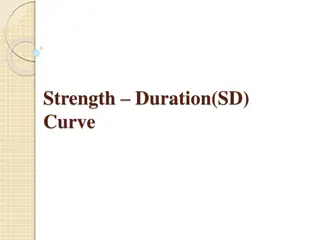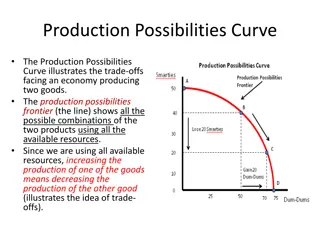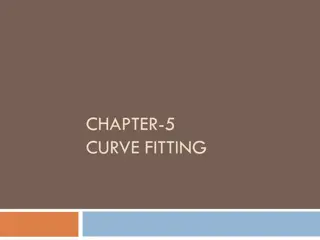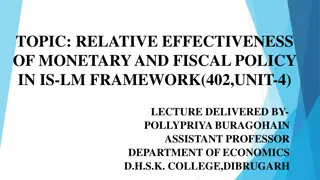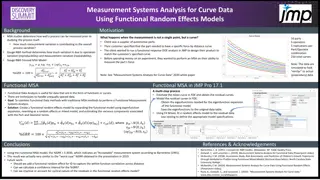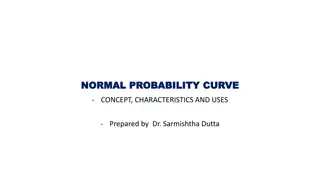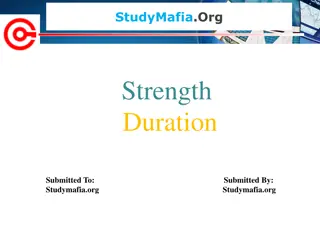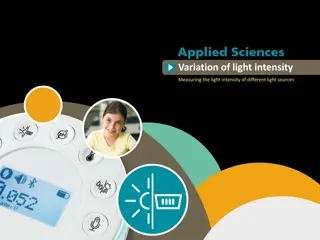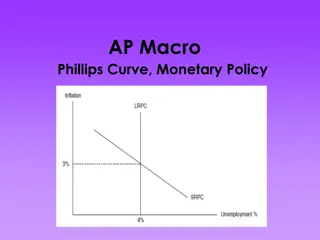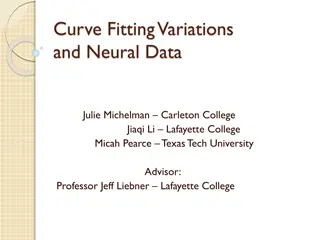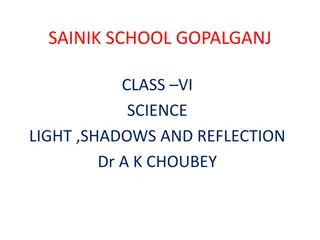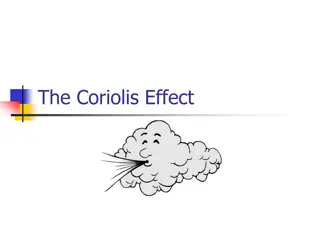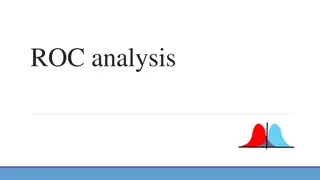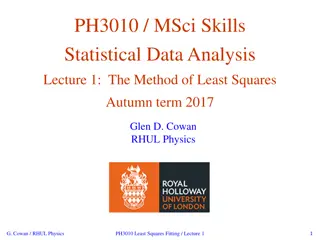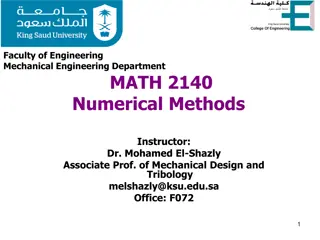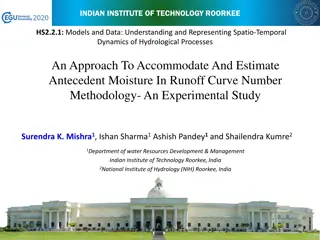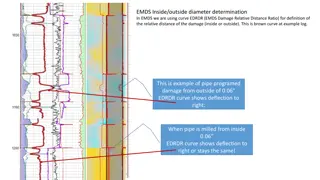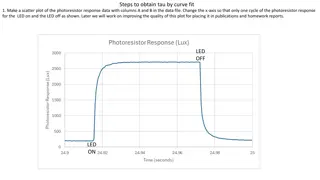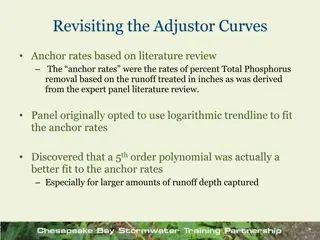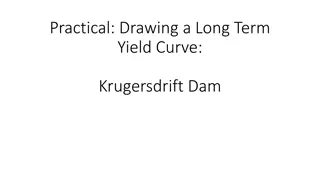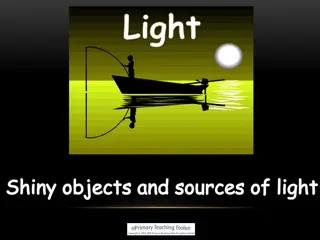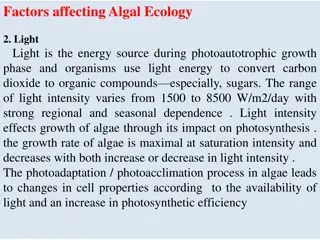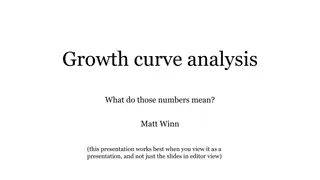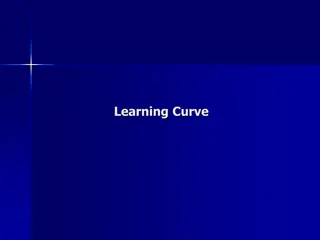Indifference Curve Analysis in Economics
Indifference curve analysis in economics involves examining consumer preferences through the representation of various utility levels achieved from different combinations of goods. By combining indifference curves with budget constraints, optimal consumption bundles can be determined. The analysis i
0 views • 25 slides
Shifts in Demand Curve
This lesson explores factors that can cause a demand curve to shift, defining terms like Ceteris Paribus and identifying factors influencing demand. Shifts in the demand curve and examples of price influences are discussed, emphasizing the impact of factors beyond price on consumer behavior.
0 views • 16 slides
Strength-Duration (SD) Curve: A Neuromuscular Diagnostic Test
Strength-Duration (SD) curve is a diagnostic test assessing neuromuscular integrity by measuring the relationship between stimulus strength and duration. It helps in electro-diagnosis of peripheral nervous system disorders and evaluates nerve degeneration and regeneration. The curve is obtained by p
3 views • 17 slides
Production Possibilities Curve and Economic Growth
The Production Possibilities Curve illustrates trade-offs in an economy producing two goods, showing possible combinations using available resources. Efficiency on the curve means no way to make some better off without others worse off. Opportunity cost is the given-up production when increasing one
0 views • 5 slides
Item Characteristic Curve Presentation by Chong Ho Alex Yu
Presentation slides showcasing the item characteristic curve by Chong Ho and Alex Yu. The slides contain detailed information and visuals related to the curve, providing a comprehensive overview of its characteristics and analysis. Each slide presents key insights and data points in a visually engag
1 views • 37 slides
Curve Fitting Techniques
Curve fitting involves approximating function values using regression and interpolation. Regression aims to find a curve that closely matches target function values, while interpolation approximates points on a function using nearby data. This chapter covers least squares regression for fitting a st
1 views • 48 slides
Monetary Policy Effectiveness in the IS-LM Framework
The relative effectiveness of monetary policy in influencing investment, employment, output, and income depends on the shape of the LM curve and the IS curve. A steeper LM curve signifies higher effectiveness as it indicates less interest elastic demand for money, resulting in significant changes in
1 views • 24 slides
Functional Measurement Systems Analysis for Curve Data Using Random Effects Models
Measurement Systems Analysis (MSA) is crucial in determining the contribution of measurement variation to overall process variation. When dealing with curve data instead of single points, a Functional MSA approach using random effects models can be applied. This involves estimating mean curves, mode
0 views • 5 slides
The Normal Probability Curve
The Normal Probability Curve, also known as the normal distribution, is a fundamental concept in statistics. It is symmetric around the mean, with key characteristics such as equal numbers of cases above and below the mean, and the mean, median, and mode coinciding. The curve's height decreases grad
1 views • 10 slides
Strength-Duration Curve in Neuromuscular Stimulation
The strength-duration curve depicts the relationship between electrical stimulus intensity and time required for minimal muscle contraction. It helps assess nerve damage in lower motor neuron lesions. Various types of curves exist based on innervation status, such as normal innervation, complete den
1 views • 15 slides
Light Intensity Variation in Different Sources
Explore the correlation between light intensity and efficiency in various light sources through an intriguing experiment. Delve into the theoretical framework and practical applications to grasp the essence of light intensity and its distribution. Uncover the factors influencing the efficiency of li
0 views • 21 slides
The Phillips Curve and Its Implications
The Phillips Curve, introduced by economist A.W. Phillips in 1958, initially showed an inverse relationship between unemployment rate (u%) and inflation rate (tt%). This led policymakers to consider a trade-off between reducing unemployment and increasing inflation. However, the concept faced challe
1 views • 22 slides
Curve Fitting and Regression Techniques in Neural Data Analysis
Delve into the world of curve fitting and regression analyses applied to neural data, including topics such as simple linear regression, polynomial regression, spline methods, and strategies for balancing fit and smoothness. Learn about variations in fitting models and the challenges of underfitting
0 views • 33 slides
Light, Shadows, and Reflection in Science
Light is a vital form of energy that helps us see objects. Luminous objects emit light, while non-luminous objects do not. Understanding how light interacts with objects, creating shadows and reflections, is crucial in science. Transparent objects allow light to pass through, translucent objects all
0 views • 13 slides
Light: Key Concepts for Year 3 Students
Delve into the world of light with Year 3 students through engaging activities and explorations. Learn about sources of light, shadows, reflective surfaces, and the importance of light for vision. Discover how light helps us see and how shadows are formed, while exploring materials and objects that
1 views • 9 slides
Global Wind Patterns and the Coriolis Effect
Air pressure differences cause winds, with the Coriolis Effect causing wind paths to curve as air moves from high to low pressure areas. In the Northern Hemisphere, winds curve to the right, and in the Southern Hemisphere, they curve to the left. Planetary and local winds are influenced by temperatu
1 views • 14 slides
ROC Analysis in Classification of Biological Samples
Differentially expressed genes can be utilized to categorize biological samples as responder or non-responder to treatments. Receiver Operating Characteristics (ROC) analysis is a method to evaluate classification performance based on sensitivity, specificity, true positive rate, and false positive
1 views • 8 slides
Statistical Data Analysis: The Method of Least Squares
This module on Statistical Data Analysis covers curve fitting using the method of least squares and an introduction to Machine Learning. Students will learn how to find fitted parameters, statistical errors, and conduct error propagation. The goal is to accurately fit a curve to measured data points
0 views • 36 slides
Nonlinear Curve Fitting Techniques in Engineering
Utilizing nonlinear curve fitting techniques is crucial in engineering to analyze data relationships that are not linear. This involves transforming nonlinear equations into linear form for regression analysis, as demonstrated in examples and methods such as polynomial interpolation and exponential
0 views • 18 slides
Spatio-Temporal Dynamics of Hydrological Processes at IIT Roorkee
This study conducted at the Indian Institute of Technology Roorkee focuses on modeling and understanding hydrological processes, particularly in estimating antecedent moisture in the Runoff Curve Number methodology. The research delves into the historical background of the Soil Conservation Service
1 views • 13 slides
Pipeline Diameter Determination Using EMDS Curve Analysis
EMDS (EMDS Damage Relative Distance Ratio) curve analysis is utilized for determining the inside/outside diameter of pipelines based on relative damage distance. Collar mass variations and sensor readings indicate damages, such as compromised casing collars and unreported casing patches behind tubin
0 views • 9 slides
Steps to Obtain Tau by Curve Fit
Learn how to analyze photoresistor response data and obtain the time constant (tau) by curve fitting. Follow steps to create scatter plots, calculate Lux values, model equations, errors, and more to improve the quality of your data analysis. Enhance your data visualization skills and optimize data f
2 views • 24 slides
Revisiting Adjustor Curves for Total Phosphorus Removal Rates
Based on a literature review, it was found that a 5th-order polynomial curve is a better fit than the originally used logarithmic trendline for anchor rates of percent Total Phosphorus removal related to runoff depth. The expert panel report reflects the old curves while trendline equations in FAQ d
0 views • 7 slides
Practical Guide to Drawing Long-Term Yield Curve at Krugersdrift Dam
Learn how to draw a long-term yield curve at Krugersdrift Dam step-by-step, including setting up the study, browsing for data, importing hydrology files, manipulating the curve for accuracy, and achieving the final result.
0 views • 7 slides
Elasticity in Economics
Elasticity in economics refers to the responsiveness of demand to price changes. A more elastic curve results in larger quantity changes for small price changes, while a less elastic curve requires larger price changes to affect quantity consumed. The elasticity of demand can be measured by calculat
2 views • 13 slides
Sources of Light and Reflection
Exploring the concept of light sources and reflection, the article delves into how light is created by various objects like the sun, light bulbs, and fires. It explains the difference between sources of light and objects that reflect light, such as shiny metal surfaces. The reader is encouraged to i
0 views • 14 slides
Light Absorption by Chlorophyll in Biology
Explore how chlorophyll absorbs light in photosynthesis, the role of different types of seaweeds, and the use of spectrometers to measure light absorption. Discover the specific light regions absorbed by chlorophyll A and B, as well as adaptations in seaweeds for varying light intensities. Learn abo
1 views • 9 slides
Light: How We See and Interact with Objects
Explore the fascinating world of light and vision, from how light travels in straight lines to how we perceive objects. Learn about luminous and nonluminous objects, the different categories of light sources, and the vocabulary associated with light interactions. Delve into the concepts of emitting,
0 views • 7 slides
Factors Affecting Algal Ecology: Light Intensity Impacts on Algae Growth and Composition
Light intensity plays a crucial role in the growth and composition of algae. Algae undergo photoadaptation processes to adjust to varying light levels, affecting their photosynthetic efficiency and cellular properties. High light intensity can lead to photoinhibition and changes in cellular composit
0 views • 19 slides
Visual Analysis: Decisions, Batman's Graphs, COVID Tests, and Flattening the Curve
Explore a collection of images featuring Mythbusters, Batman's original and corrected graphs, alternative Batman heights and weights, COVID tests graph, and a depiction of flattening the curve. Each image provides insight into decision-making, data representation, and visual storytelling. Learn how
0 views • 7 slides
Aggregate Supply and Demand in Economics
Explore the concept of aggregate supply and demand, including determinants and the relationship between price level and quantity demanded. Learn about the reasons for the downward slope of the aggregate demand curve and why the law of demand doesn't directly apply to the economy as a whole. Discover
0 views • 15 slides
The Interpretation of Model Summary Numbers in Pupil Dilation Growth Curve Analysis
When analyzing a growth curve model for pupil dilation, the model summary provides various numbers such as Intercepts, Poly1, Poly2, Condition effects, and interaction terms. Understanding these numbers is crucial for interpreting how pupil dilation is predicted by time and affected by experimental
2 views • 34 slides
Production Possibilities Curve and Economic Growth
Explore the concept of the production possibilities curve, including its assumptions, implications of being under or beyond the curve, types of opportunity costs, shifts in the curve, and the impact of economic growth on a nation's productivity and output capacity.
0 views • 18 slides
The Kinked Demand Curve Hypothesis in Oligopoly Markets
In oligopoly markets, prices often remain rigid despite cost changes. The kinked demand curve hypothesis, introduced by economist Sweezy, explains this phenomenon. It suggests that the demand curve an oligopolist faces has a kink at the current price level, with elastic demand above and inelastic de
0 views • 4 slides
The Learning Curve Phenomenon in Manufacturing
Performance improvement in manufacturing is described by the learning curve, where labor input per unit decreases as experience grows. The general equation and exponential curve of learning are discussed, along with the concept of learning rate. Determining the index of learning from the learning ra
0 views • 11 slides
Alternative Turbulence Correction Methods: Early Thoughts
Peter Stuart shares insights on alternative methods for correcting turbulence in wind power generation, including a power curve simulation concept and zero turbulence power curve hypothesis. The discussion delves into modifying IEC turbulence correction techniques and behavior analysis of zero turbu
0 views • 16 slides
Analysis of Proposed Adjustments to Operating Reserve Demand Curve
This analysis delves into proposed adjustments to the Operating Reserve Demand Curve (ORDC), aiming to enhance price signals for retaining existing assets, adding dispatchable generation, and optimizing RUC frequency. The study evaluates market-wide energy and headroom revenue changes, considering d
0 views • 8 slides
Operating Reserve Demand Curve (ORDC) Enhancement Analysis Summary
Explore the analysis of potential modifications to the Operating Reserve Demand Curve (ORDC) suggested by the Technical Advisory Committee (TAC) for ERCOT. The discussion includes options to generate similar annual revenues to the bridging option for 2022, such as adjusting Real-Time On-Line Reserve
0 views • 13 slides
Understanding Light: Nature, Propagation, and Models
Explore the fundamental concepts of light, including its dual nature as both waves and particles, the speed of light in different mediums, the concept of photons, and the wave model of light propagation. Delve into topics such as wave-like properties, particle-like behaviors, the speed of light in v
0 views • 14 slides
Curve Construction Methods and Examples
Explore detailed examples and solutions for constructing horizontal and circular curves in engineering projects. Learn about determining curve data, deflection angles, stations, and other key parameters. Understand the principles behind curve radius, external distance, middle ordinate, and chord len
0 views • 8 slides

